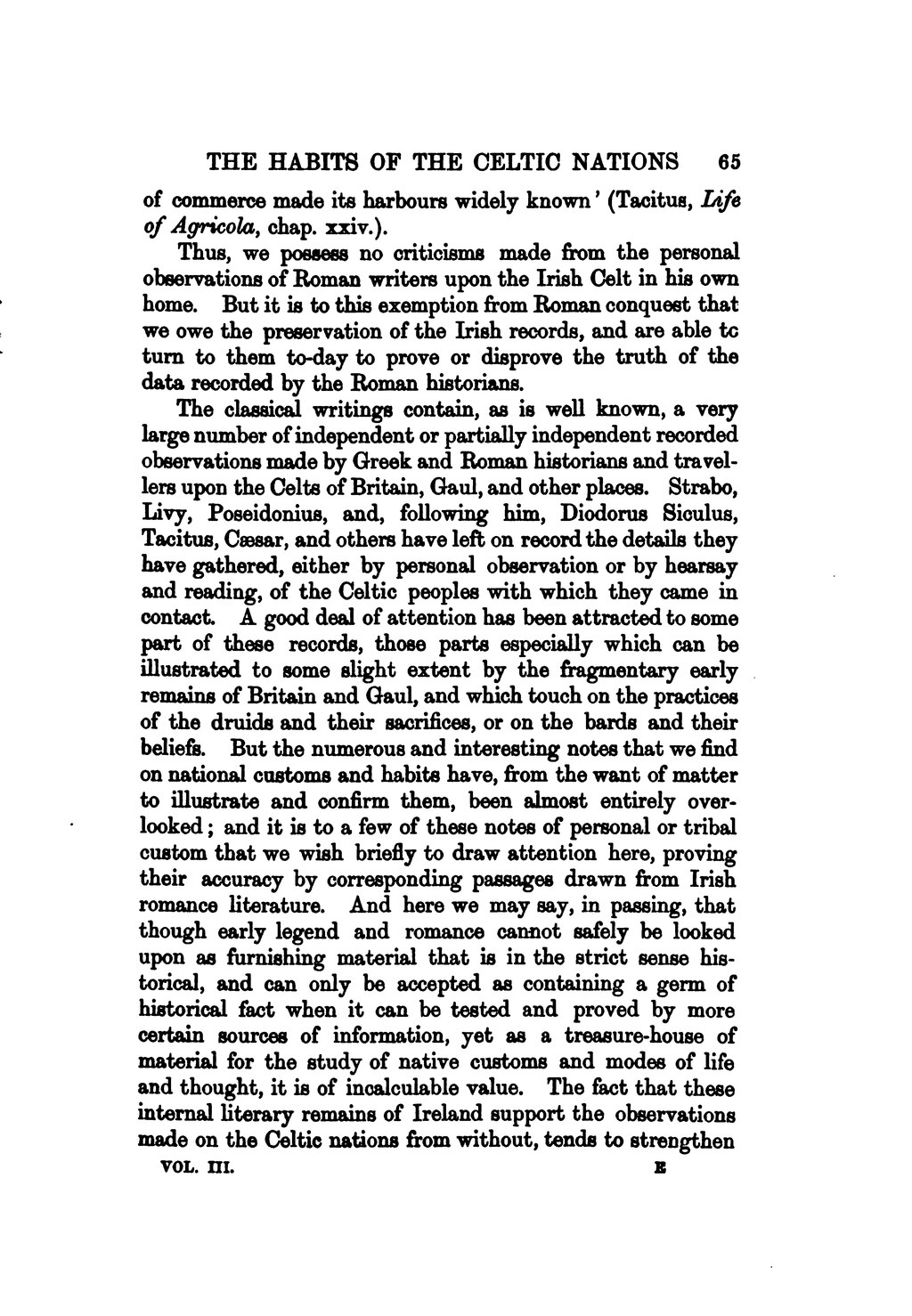of commerce made its harbours widely known’ (Tacitus, Life of Agricola, chap. xxiv.).
Thus, we possess no criticisms made from the personal observations of Roman writers upon the Irish Celt in his own home. But it is to this exemption from Roman conquest that we owe the preservation of the Irish records, and are able to turn to them to-day to prove or disprove the truth of the data recorded by the Roman historians.
The classical writings contain, as is well known, a very large number of independent or partially independent recorded observations made by Greek and Roman historians and travellers upon the Celts of Britain, Gaul, and other places. Strabo, Livy, Poseidonius, and, following him, Diodorus Siculus, Tacitus, Ceasar, and others have left on record the details they have gathered, either by personal observation or by hearsay and reading, of the Celtic peoples with which they came in contact. A good deal of attention has been attracted to some part of these records, those parts especially which can be illustrated to some slight extent by the fragmentary early remains of Britain and Gaul, and which touch on the practices of the druids and their sacrifices, or on the bards and their beliefs. But the numerous and interesting notes that we find on national customs and habits have, from the want of matter to illustrate and confirm them, been almost entirely overlooked; and it is to a few of these notes of personal or tribal custom that we wish briefly to draw attention here, proving their accuracy by corresponding passages drawn from Irish romance literature. And here we may say, in passing, that though early legend and romance cannot safely be looked upon as furnishing material that is in the strict sense historical, and can only be accepted as containing a germ of historical fact when it can be tested and proved by more certain sources of information, yet as a treasure-house of material for the study of native customs and modes of life and thought, it is of incalculable value. The fact that these internal literary remains of Ireland support the observations made on the Celtic nations from without, tends to strengthen

